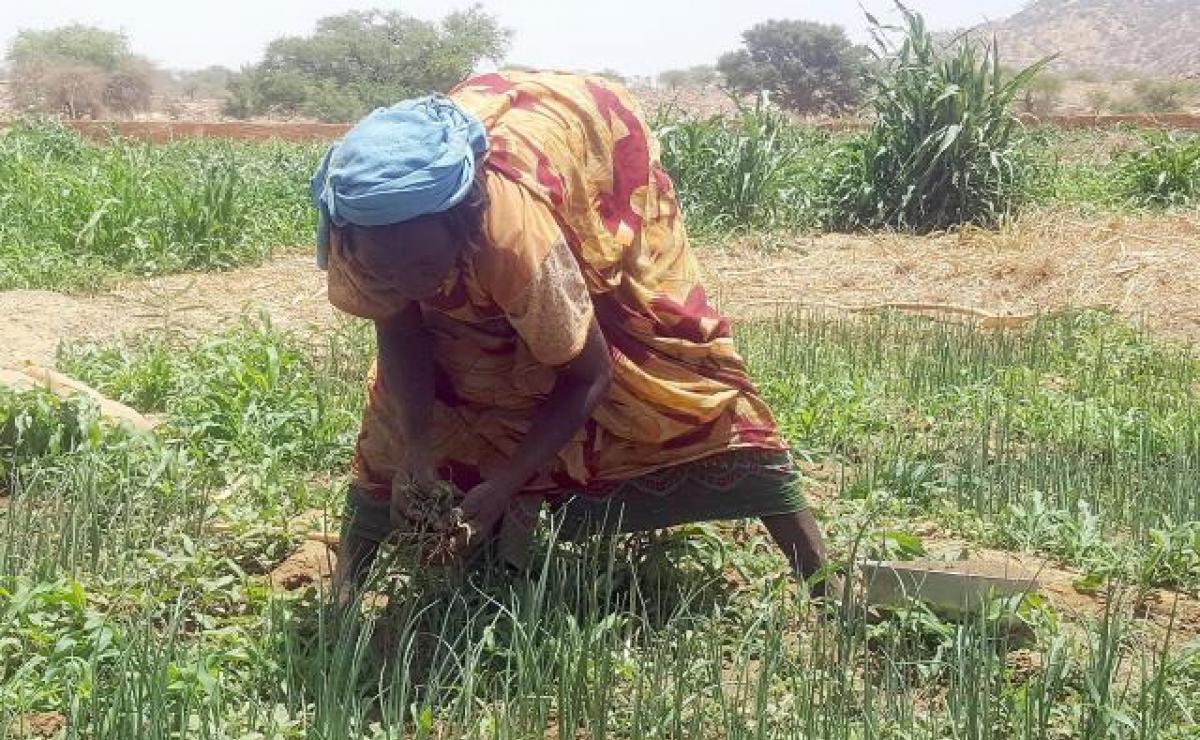16 Days: Working for women’s economic justice

LWF promotes empowerment through skills and leadership training, access to land and seeds
(LWI) - Empowering women in the economy and closing gender gaps in the world of work are key to achieving Gender Equality. The Lutheran World Federation (LWF) works hard to overcome the power dynamics, cultural norms, legal frameworks and unequal access to resources that all create barriers for women.
In LWF World Service, any livelihood initiative begins by analyzing gender power relations, needs and vulnerabilities. LWF targets the most vulnerable households for skills development and income generation, with a specific focus on women and youth. By analyzing the context, raising awareness, and jointly developing approaches to challenge patterns upholding inequalities at individual, family and community levels, gender justice, including economic justice, can be achieved.
Providing access to land and seeds
In Chad, LWF has been assisting vulnerable female-headed households with access to land and to seeds. 49-year-old Hawa Fadoul Ahmat, mother of seven children and the second of third wives in a polygamous marriage, explains: “Due to my family situation, I was entitled to receive food aid, but the rations were never sufficient. To increase our income, I used to do various income-generating activities, working for others; in return, I would get a very small parcel which I could cultivate for my own needs. The work was extremely hard, I had to protect the field against animals, and the harvest was never sufficient to sustain my family.”
“One day, LWF came to our village. After their assessment, I and around 20 other female-headed households all received our own land, of 1 hectare, in and around the village. This harvest will be the first time I cultivate enough for my family! My hope is to make enough profit to establish myself with a small-scale business and a future with more hope, God willing.”
According to Food and Agriculture Organization (FAO), women farmers have significantly less access to, control over, and ownership of land and other productive assets compared to their male counterparts. Women account for only 12.8 per cent of agricultural landholders in the world.
Vocational training to improve livelihoods
In South Sudan, ravaged by war, poverty and underdevelopment, women, in particular in Jonglei state, bear the greatest brunt of economic hardships. Climate change has made the shift between drought and flooding even harder. Most families do not have more than one meal per day, affecting the health and growth of women and children.
Recognizing the need for action, LWF undertook an analysis of market needs and demands in the area. As a result, vocational training for women in catering (40 women) and hairdressing (10 women) was initiated. One of the participants, Abul Kongor Angok, just finished a two-months training cycle. “In addition to the prospect of opening a small business selling food, I can use the knowledge gained from the training to cook good and nutritious food for my family. With the income I gain, I want to support my children to stay in school and to cover the cost of medical treatments and medication”.
Globally, improvements in education for women account for a large share of economic growth. Yet, according to UN Women, such significant gains in female education do not always translate into progress in the job market for women.
Securing livelihoods for vulnerable women
Discrimination and barriers are well known to female Syrian refugees in Zaatari in Jordan, who face the triple stigma of being women, refugees and having lived in a camp for almost a decade. The camp still accommodates close to 80,000 refugees, and 20% of the households are female-headed. Established in 2012, the LWF Peace Oasis has recently set up a Vocational Training Center, targeting male and female Syrians who are 32 years old and above.
Based on a similar experience made by LWF for out-of-camp refugees in Irbid last year, the center offers practical training in selected sectors, such as soft skills training and marketing training. “With the Government of Jordan’s 2018 legalization of home-based business, developing skills to run such business is an urgent priority,” Islaam Esmat Al-Shdefat, LWF’s Area Manager in Zaatari notes. “While LWF Jordan will continue to work on opening up spaces for women in the labor market as well as addressing harassment and discrimination, securing livelihoods for vulnerable women who face restrictions on their movement is equally important.”
Globally, according to the World Bank, over 2.7 billion women are legally restricted from having the same choice of jobs as men. Of 189 economies assessed in 2018, 104 economies still have laws preventing women from working in specific jobs,
Promoting women’s access to land and inheritance, eliminating discrimination under the law, and widening access to technology, markets and credits are among LWF’s stated goals for this strategy period.
Women’s increased leadership through livelihoods programming is key to ensure they can influence their families and communities, duty-bearers and traditional authorities at local, national and international level.

